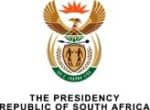About half of Nigeria’s federal budget and more than 80 % of its foreign trade records are derived from oil and gas imports. In Africa’s largest oil producer, President Bola Tinubu last month imposed emergency law in the Delta’s Rivers State, citing social discord and strikes on oil installations, and at least three flames and blasts on oil and gas pipelines have been reported over the past year. In addition to appointing a resigned vice-admiral of the Nigerian Navy as time executive, Tinubu also suspended the state government Siminalayi Fubara, a part of the major opposition party, and his assistant and state politicians. The culprits of the episodes have not been identified, but violent attacks on pipelines and oil facilities have long been a problem for the Niger Delta’s generation. Vivers has also experienced political violence, with officials accused of using criminals to strike pipes and each other during conflicts. In order to increase Nigeria’s oil production, Tinubu pledged to crack down and improve security in 2023. Since his president Muhammadu Buhari’s historic lows of less than 1 million barrels per day, output has gradually increased during his time in office. Tinubu has stated that he wants to increase this to 2 million barrels per day. A prolonged period of vandalism may wreak havoc on the government’s budget because oil and gas exports account for about half of the government’s budget and more than 80 % of its international exchange documents. According to Tinubu, safety reports show “disturbing incidents of vandalization of pipelines by some militants without the government taking any action to stop them,” and that the network graffiti is related to the continuing political crisis in Rivers. The government who has been suspended, Fubara, has denied any affiliation with violent organizations. However, some have accused Tinubu of using the charter of a state of emergency as a justification for a politically motivated power grab that may cause problems for Nigeria’s politics by significantly enlarging the president’s authority. In Rivers, Celestine Akpobari, a civic society advocate, referred to Tinubu’s actions as an “attack on democracy and democracy.” A malaria that nests on your scrotum can’t be killed with a hammer, Akpobari said. ” That’s what has occurred here. That is “executive callousness,” according to Nobel laureates Wole Soyinka and former president Goodluck Jonathan. Only the fourth day a state’s elected legislature has been suspended since Nigeria’s returning to democracy in 1999 has been achieved through a state of emergency. Dele Olojede, a journalist and winner of the Pulitzer Prize, said,” We are lightly getting rid of the whole state authorities and overriding the will of the electorate.” The Trans Niger Pipeline, which exports about 15 % of the country, caught fire last year, with smoke billowing from the hospital. After about a year of disturbance, operations at the network, which has a maximum potential of 450, 000 barrels of crude per day, were entirely restored on Tuesday. Prior to the transfer of the TNP to the local collaboration Renaissance Africa Energy Company as part of Shell’s withdrawal from Nigeria’s inland oil industry, it was run by Shell. The TNP flames, which the Nigeria Police Force claimed has taken two people into prison, was being investigated by the police force. After a disagreement with his father and Tinubu’s alliance Nyesom Wike, the political turmoil in Rivers broke out shortly after Fubara took the oath of office as governor in May of 2023. Due to dozens of people who were still loyal to his estranged godfather Wike, the Supreme Court of Nigeria’s Supreme Court ruled last month that there was” no government” in Rivers as Fubara governed without a full-strength state legislature. The president’s actions were unlawful, according to Cheta Nwanze, a partner at the Lagos-based SBM Intelligence company, adding that the fact that network fires continued after the state of disaster meant that” the justification he gave has been made hollow.” David Pilling contributed more reporting and cartography in London, as well as Steven Bernard’s additional data visualization and cartography.
Nigeria’s oil pipeline explosions cause a national political issue.



